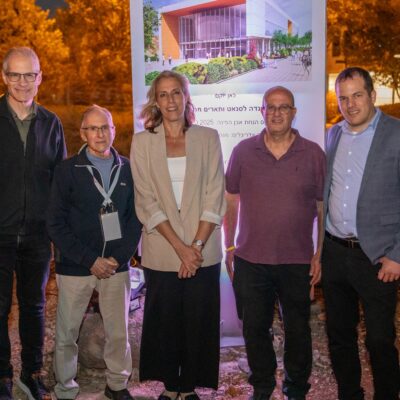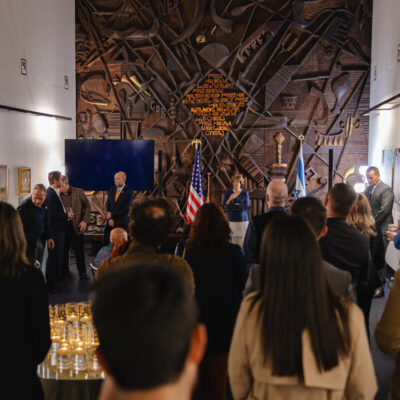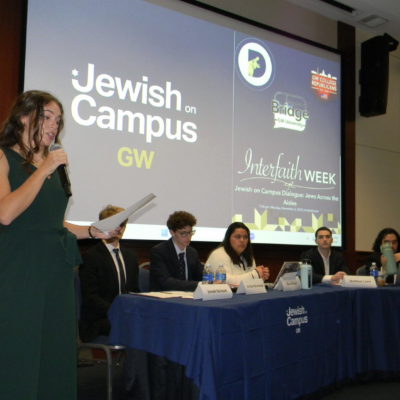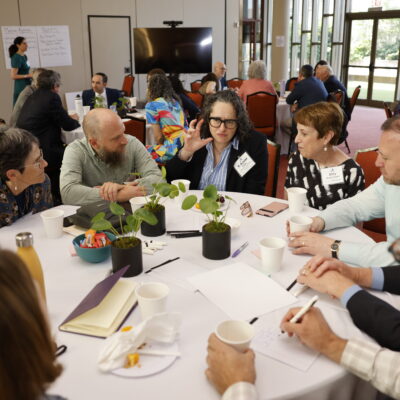The Creator or the Destroyer: Dealing with Founder’s Syndrome
 Founder’s syndrome, a concept first applied to the corporate world, has become an accepted phenomenon in the nonprofit realm over the past decade. It occurs when the founder of an organization fails to yield control over the organization’s reins and prevents it from adapting to changing circumstances.
Founder’s syndrome, a concept first applied to the corporate world, has become an accepted phenomenon in the nonprofit realm over the past decade. It occurs when the founder of an organization fails to yield control over the organization’s reins and prevents it from adapting to changing circumstances.
In many volunteer sectors there are examples of effective nonprofit organizations created by a single individual – driven by a personal experience or by altruistic motives – who was able to translate his or her passion and commitment into action. For example, the father of a child with autism is frustrated by the lack of assistance provided to his son by existing programs. Driven by his passionate commitment as a father and his disappointment in being unable to secure needed services for his son, he creates an organization to help his child and other children who are not benefiting from existing services. There is nothing that can match the passion that grips someone whose parent, child, or spouse is suffering from a lack of appropriate services.
Or professionals who are continually frustrated by an unresponsive service system, which fails to meet the needs of their clients, will break away and create a new organization to respond to their clients’ specific needs. In Jerusalem an organization was created to serve people with Alzheimer’s disease who were falling between the cracks of public services for the elderly. A social worker created day care centers that provided meaningful activities for those with Alzheimer’s while offering respite services for their caregivers. In another example, a social studies teacher developed a voluntary organization to loan medical equipment to families who did not have the resources to purchase the items needed when a family member was released from the hospital and was being cared for at home.
In each of these cases and in many other examples, passionate and creative people initiate, develop, and implement their ideas so that the reach of human services is expanded. As the organizations they created grow and expand, it is very difficult for the founders to think about the time when they are no longer able to play a central role in the development or delivery of services.
Psycho-dynamically their identity is so wrapped up in the institutions they have created that it is almost as if the nonprofit is their “child.” All of us who have been parents know that one of the most difficult aspects of parenting occurs when the children leave the protective environment of the family and set out on their own. We have many ambivalent feelings – wanting our children to grow up and become independent, but sad and worried about letting them go.
In a similar way the creator of a nonprofit has parented and shepherded the nonprofit from an idea, to a detailed plan, to its implementation, and to its continued growth and development. The founder has a concept in mind and a dream for the growth of the agency.
Understandably the founder wants to develop an excellent “product” in the agency’s services but is often reluctant to let go of his or her creation. Sharing the vision and making room for the organization to experiment with how it provides services to the community are difficult. Once the board is created the dilemma is whether to share all aspects of the organization’s life with the board. Of course, the founder would like assistance raising funds and developing financial resources, but might be less willing to empower the board to make important policy decisions. Continuing the parent-child analogy, board members who are not empowered may feel like children stifled by their parents who do not give them room to grow, develop their interests, and find their way through life.
This dynamic occurred in an adult education agency created by a top-notch Jewish educator. He sought the assistance of staff and the board in raising funds for the organization, but he was unwilling to share the decision making concerning educational policies and programs. He felt that because he created the organization, he had the right to determine its direction.
How can nonprofit organizations handle founder’s syndrome in a way that both benefits the organization and the community? Consider taking the following steps to supportively confront the person who initiated and implemented the agency’s programs.
1. At some point it will be apparent to the volunteer leaders and/or the professional staff that the way the founder is working or the longevity of the founder’s tenure has become problematic. It is imperative that there be a serious conversation with the founder about his or her continuing contributions to the agency and the nonprofit’s future. It is not easy to engage someone in this conversation, but if there is real interest in the agency’s continued survival, growth, and development then it must take place.
2. If the professional staff, as a group, is not secure enough in initiating this discussion then it should be the most senior professional who brings the issue to the founder’s attention.
3. If founder’s syndrome is an issue that board members have been discussing outside of meetings, then the board must be part of this conversation.
4. This conversation should focus on the founder’s past and current accomplishments and on the sustainability of the organization in terms of future professional leadership.
Founders do not want to witness the destruction of something they have worked so hard to create.
5. Once the issue has been placed on the table, it might require many discussions between the parties; it may take months before the founder acknowledges the need for a change in leadership. At some point if the founder is not receptive to planning for a succession of leadership in the organization, the board of directors may have to make a difficult decision to remove the founder from her leadership position when her continuing in the role is destructive to the agency.
This process is not something that should be discussed in private discussions and in hallways. It must be handled respectfully and professionally between the key players in the nonprofit. Of course there will be difficult and even painful moments, but if the issue is not confronted then the continued effectiveness and even sustainability of the nonprofit organization may be at risk. Founders, with their passion and commitment, should be acknowledged, respected, recognized, rewarded, and appreciated for their contribution in creating and initiating services for the community. At the same time, there has to be trust in the next generation of involved leaders who will continue to ensure that needs are met by the nonprofit organization.
Stephen G. Donshik, D.S.W., is a lecturer at Hebrew University’s International Nonprofit Management and Leadership Program and has a consulting firm focused on strengthening nonprofit organizations and their leadership for tomorrow. Stephen is a regular contributor to eJewish Philanthropy.

 Add EJP on Google
Add EJP on Google










